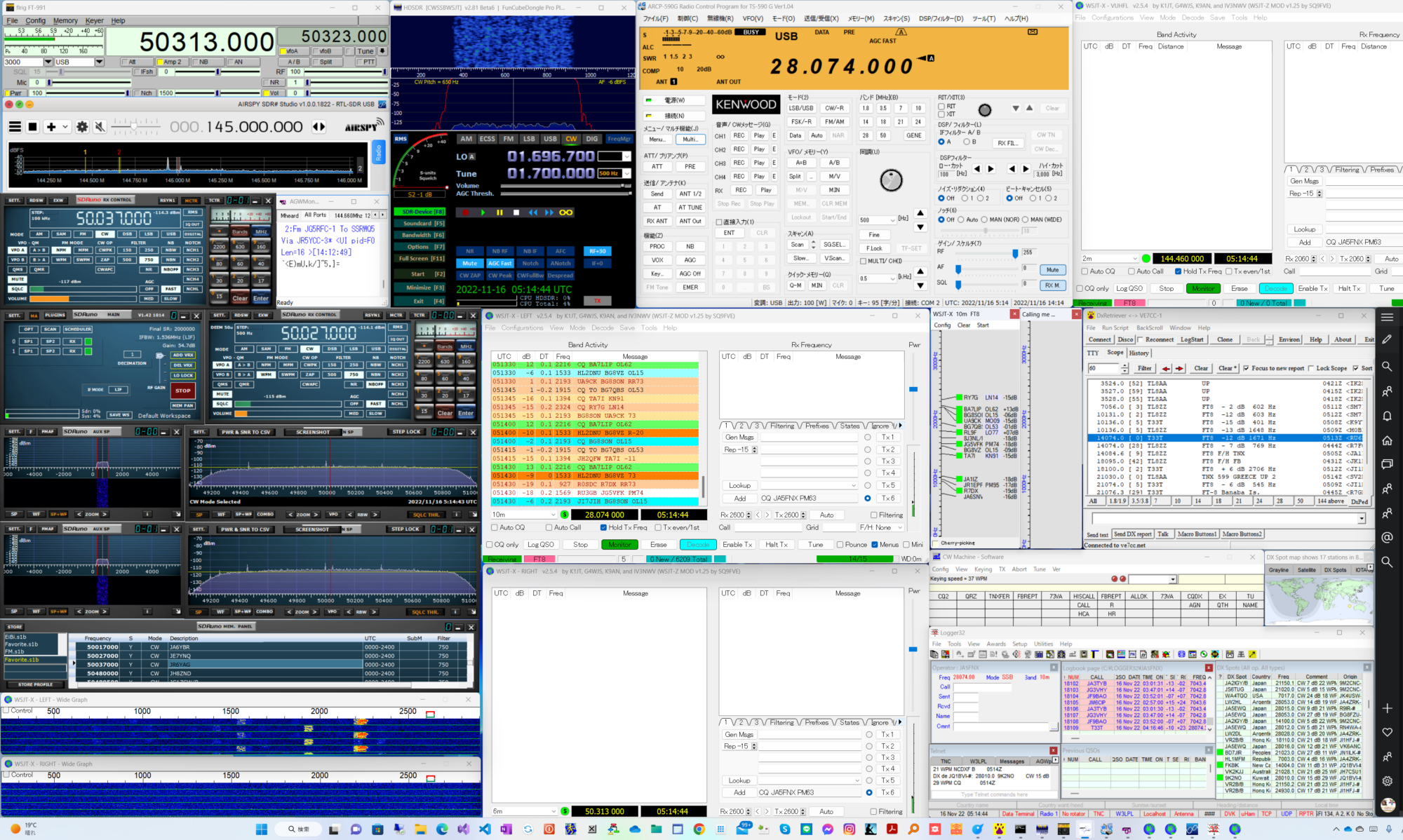fw:[wsjt-devel] WSJT-X v1.9.0-rc2: Testing of FT8 DXpedition Mode
The WSJT Development Group is pleased to announce a Release Candidate of
WSJT-X Version 1.9.0. This is a second beta release, so it’s called
v1.9.0-rc2. A first candidate release, v1.9.0-rc1, has already been
tested in the field by a small test group. A General Availability (GA)
release of v1.9.0 will be announced at a suitable time in the near
future. After that time you should no longer use any -rc# candidate.
Here’s a short list of features and capabilities added to WSJT-X since
Version 1.8.0:
1. New FT8 DXpedition Mode to facilitate high QSO rates in pileup situations
2. Decoding improvements for JT65 mode, including a priori (AP) decoding
when VHF/UHF/Microwave features are enabled
3. Optional Auto-Sequencing in JT4, JT9, and JT65 when VHF/UHF/Microwave
features are enabled
4. Better suppression of low-confidence false decodes generated by AP
decoding in FT8 mode
5. Improved decoding performance for WSPR mode, especially effective at
LF and MF
6. Minor adjustments to auto-sequencing behavior
7. More flexible Doppler control features for EME
8. Improved waterfall sensitivity for very weak signals
9. Automatic real-time forwarding of logged information to N1MM Logger+
10. Expanded and improved UDP messages sent to companion programs
11. Bug fixes and other minor tweaks to user interface
*Public Test of FT8 DXpedition Mode*
————————————
A primary purpose of this beta release is to allow field testing of FT8
DXpedition Mode. If you decide to install v1.9.0-rc2, please help us by
participating in a public test run scheduled for March 6-7 (evening of
March 6, NA time). The goal is to simulate a rare-DXpedition pileup by
having many stations (“Hounds”) calling and trying to work a designated
pseudo-DXpedition station (“Fox”). Note that everyone participating in
the test *MUST* use WSJT-X v1.9.0-rc2. In addition, you must read and
carefully follow the instructions posted here:
http://physics.princeton.edu/pulsar/k1jt/FT8_DXpedition_Mode.pdf
Reading the instructions for *FT8 DXpedition Mode* is very important!
If you have legitimate access to more than one callsign (XYL, club call,
or whatever) please feel free to call and work the Fox more than once.
We want the test pileup to be as deep as possible.
The scheduled test will take place as follows:
Date UTC Frequency
————————-
Mar 6 2300 14.080 MHz
Mar 7 0000 10.141
Mar 7 0100 7.080
Mar 7 0200 3.585
The indicated USB dial frequencies are subject to change, depending on
other band usage at the time. If last-minute instructions are necessary
they will be posted here:
http://physics.princeton.edu/pulsar/k1jt/DXpedition_Mode_Test.txt
Note that the dial frequencies are NOT the conventional FT8 operating
frequencies for each band. DXpedition Mode should *NOT* be used on
standard FT8 operating frequencies.
Of course you may also choose to do your own testing of FT8 DXpedition
Mode together with a group of colleagues. One station would act as Fox,
the others as Hounds. In such tests the Fox will be limited to using a
single Tx “slot”.
Installation packages for Windows, Linux, Macintosh, and Raspian Jessie
have been posted on the WSJT web site here:
http://physics.princeton.edu/pulsar/k1jt/wsjtx.html
Scroll down to the bottom of the page to find a link to the installation
package for your system.
You can also download the packages from our SourceForge site:
https://sourceforge.net/projects/wsjt/files/
Please report any problems to email list
wsjt-devel@lists.sourceforge.net. You must be a subscriber in order to
post there.
— 73 from Joe, K1JT, for the WSJT Development Group
——————————————————————————
Check out the vibrant tech community on one of the world’s most
engaging tech sites, Slashdot.org! http://sdm.link/slashdot
_______________________________________________
wsjt-devel mailing list
wsjt-devel@lists.sourceforge.net
https://lists.sourceforge.net/lists/listinfo/wsjt-devel
